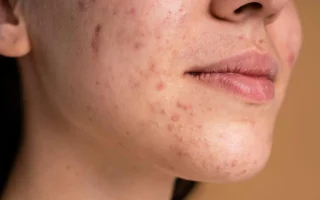We often hear the phrase, “You are what you eat,” but there’s more to it than meets the eye. Your diet isn’t just about satisfying hunger; it plays a crucial role in regulating your hormones, which in turn influence your appearance. From glowing skin to a healthy weight, understanding the intricate interplay between diet, hormones, and your appearance can unlock the secret to optimal results.
Let’s look at this intricate connection.
The Hormonal Symphony Within
Hormones guide various bodily functions to maintain harmony. Everything from metabolism and energy levels to mood and skin health is influenced by hormones. You need a delicate balance for overall well-being, and your diet and physical activities play a pivotal role in maintaining this equilibrium.
Your Skin: A Mirror of Hormonal Health
Your skin is a reflection of your internal health. Hormones, particularly those like insulin, estrogen, and cortisol, play a significant role in determining the appearance of your skin. Here’s how:
1. Insulin and Blood Sugar
High levels of insulin, often caused by consuming excessive sugary and refined foods, can lead to inflammation in the body. This inflammation can manifest on your skin as acne, premature aging, and other skin issues. A diet rich in whole foods, complex carbs, and healthy fats helps maintain steady blood sugar levels and supports clear, healthy skin.
2. Estrogen and Collagen
Estrogen, the primary female sex hormone, contributes to the production of collagen, a protein that keeps your skin plump and youthful. As estrogen levels decline with age, collagen production decreases, leading to wrinkles and sagging skin. Incorporating phytoestrogen-rich foods like soy, flaxseeds, and lentils can help support healthy estrogen levels.
3. Cortisol and Stress
Cortisol, the stress hormone, can wreak havoc on your skin when consistently elevated. Chronic stress can lead to inflammation, breakouts, and dull skin. Prioritizing stress-reducing practices like meditation, exercise, and adequate sleep can help keep cortisol levels in check.
Weight Management and Hormonal Balance
Maintaining a healthy weight isn’t just about appearance; it’s also crucial for hormonal balance. But hormones, in turn, can subtly influence your physical appearance. Let’s consider how this works.
1. Testosterone
The Testosterone is naturally produced in higher levels in males, thereby influencing male characteristics like muscle mass development and height. Testosterone also promotes fat burn. Hence, having low testosterone may lead to weight gain even while exercising just as much. If you’re testosterone deficient, the first step could be to consult TRT providers to get your levels back to normal through therapy. But afterward, ensure you consume enough Foods that contain zinc, vitamin D, and magnesium, as these nutrients promote testosterone production.
2. Leptin and Ghrelin
Leptin and ghrelin are hormones that control appetite and hunger signals. A balanced diet with adequate protein, fiber, and healthy fats helps regulate these hormones, keeping cravings in check and preventing overeating, which may lead to weight gain.
3. Thyroid Hormones
The thyroid gland produces hormones that regulate metabolism. A diet lacking in essential nutrients like iodine, selenium, and zinc can negatively impact thyroid function, slowing down metabolism and potentially leading to weight gain.
Nutrition Tweaks for Optimal Results
1. Prioritize Whole Foods
Focus on a diet rich in whole, unprocessed foods. Incorporate a variety of colorful fruits and vegetables, lean proteins, whole grains, and healthy fats. These foods provide the essential nutrients your body needs for hormone balance and overall health.
2. Opt for Balanced Meals
Craft balanced meals that include protein, complex carbs, and healthy fats. This balance helps regulate blood sugar levels, preventing insulin spikes and crashes that can impact your skin and weight.
3. Choose Hormone-Supportive Foods
Incorporate foods rich in nutrients that support hormonal health. You also want to consume enough omega-3 fatty acids (like fatty fish and flaxseeds), antioxidants (found in berries and leafy greens), and phytoestrogens (such as soy products).
4. Stay Hydrated
Your skin needs enough hydration, and your body cells need water to function. Water also promotes metabolism. So you don’t want to go thirsty for long.
5. Mind Your Portions
You hear this all the time that it’s almost becoming cliché, but it’s the truth: Don’t overeat. Overeating can lead to weight gain and disrupt hormonal balance.
6. Manage Stress
Incorporate stress-reducing practices into your routine, such as meditation, deep breathing, yoga, or spending time in nature. Lowering stress levels helps keep cortisol in check and supports healthy skin and weight management.
7. Avoid Extreme Diets
Extreme diets or drastic restrictions can negatively impact hormonal balance. Instead, focus on creating a sustainable and balanced eating plan that nourishes your body and supports your goals.
Remember, a balanced diet isn’t just a means to an end; it’s a lifestyle that empowers you to look and feel your best. So, nourish your body, respect your hormones, and embrace the beautiful connection between what you eat and how you glow.




